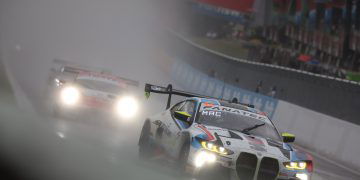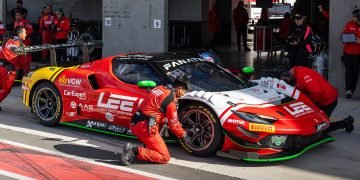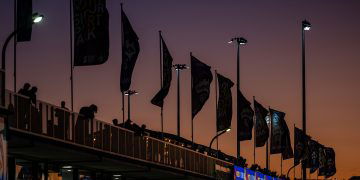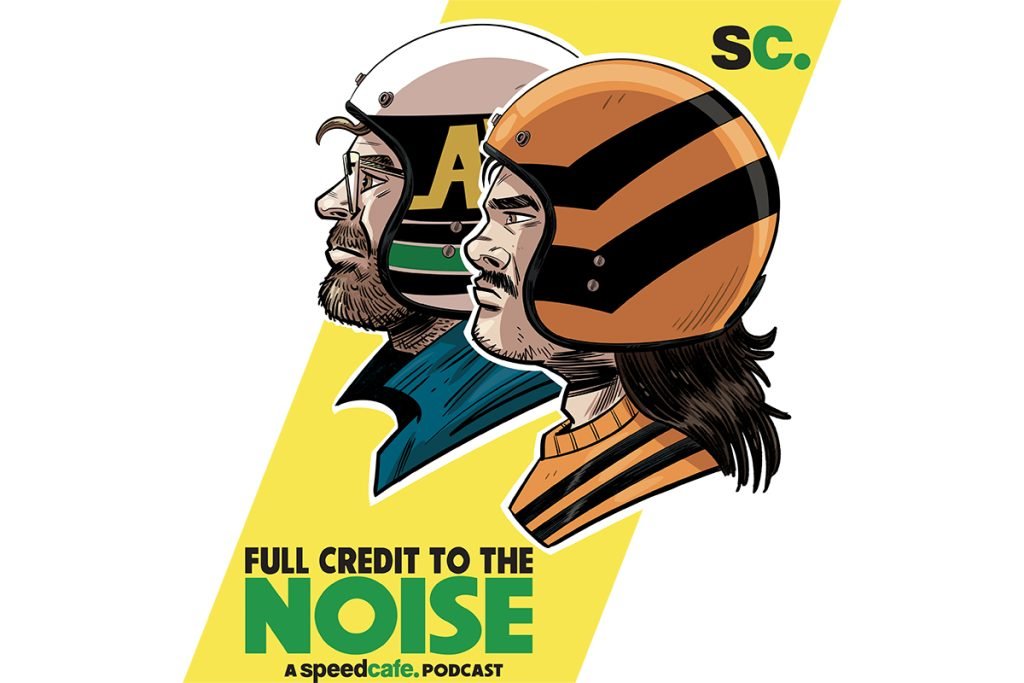
Mercedes driver George Russell has revealed the physiological impact this season's 22-race F1 calendar has taken.
The 2023 season draws to a close this weekend with the Abu Dhabi Grand Prix, a week after the sport was in Las Vegas.
Bahrain hosted the season opener in March, following three days of pre-season testing the week prior.
Since then, the sport has stopped only for the cancellation of the Chinese and Emilia Romagna Grands Prix, and the mandatory two-week shutdown in August.
The conclusion to the year has been especially tough in terms of timezone changes, with Las Vegas running late at night, equating to the early hours back in Europe.
It saw drivers and teams operate to something akin to a Japanese timezone for the event before switching for this weekend's race in Abu Dhabi, where the 17:00 race start time is a more normal 14:00 in Europe.
Russell described the change for Vegas as “pretty brutal” when asked by Speedcafe about managing timezones and fatigue in the latter stages of the year.
“I kind of see it as an opportunity because most people look tired and struggling,” he explained.
“But if you do a better job than your competitors, that gives you an advantage.
“I'm just sort of shifting one hour per day, and its going to be a continuous shift for probably two weeks in a row, from when I started shifting the body clock Friday [before Vegas].”
The time change from last weekend to this is not unique.
The F1 fraternity was forced to adapt in a similar fashion between Singapore and Japan, where the paddock operates largely to European time in the former.
This year, those events were separated by only a week, forcing the sport to quickly change its sleep and work patterns.
“That's probably been a bit of a challenge this season,” Russell noted.
“Even though the timezone difference isn't too much, Singapore being a night race, Japan early, it was effectively an eight-hour shift.
“And then the back and forth, Miami to Europe, Canada to Europe, Australia back home… The body has been all over the place.”
That effort has a measurable impact on drivers, Russell revealed.
“From the disruptions of the timezone, my heart rate during a night's sleep is, on average, about 25 percent higher than it would be when I'm in a consistent location,” he revealed.
“I spent two weeks in one location this summer, which is the longest I've spent in three years, and my heart rate was the lowest it's ever been.
“Winter is always stabilising in a low place, and then as soon as you travel, it increases.
“But definitely sleeping less, recovering less, which is all natural when you're jumping all around.
“It's not just a feeling; there's definitely data to back that up.”











































